In the realm of scientific inquiry, the question of whether we can definitively prove the existence of a soul presents a formidable challenge. While various theories and phenomena offer intriguing insights into the potential existence of a soul, the elusive nature of consciousness and the complexities of human experience continue to complicate our understanding. From quantum physics to near-death experiences, the puzzle of the soul's existence persists, prompting further exploration and debate among researchers and scholars alike. As we delve deeper into the intricacies of this enigmatic concept, the quest for concrete evidence remains a tantalizing yet elusive pursuit, leaving us to ponder the mysteries that lie beyond our current grasp.
Key Takeaways
- The soul's existence remains unverifiable through empirical means.
- Dualism and materialism offer contrasting views on the mind-body connection.
- Religious beliefs emphasize the immortal nature and significance of the soul.
- Quantum physics experiments challenge traditional perceptions, hinting at a deeper understanding of the soul.
Defining the Concept of Soul
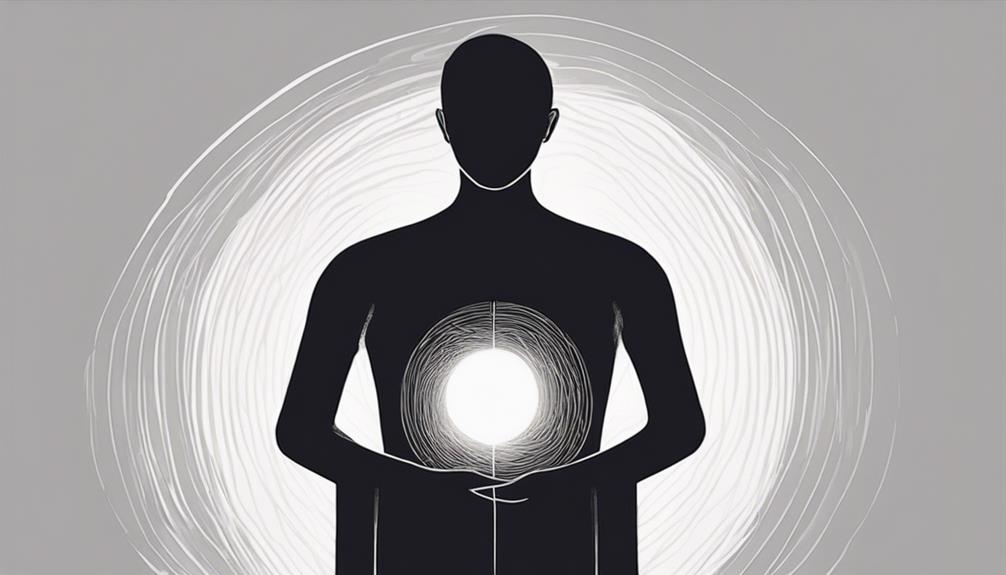
The concept of the soul, rooted in various cultural and philosophical traditions, is often defined as an intangible essence believed to house emotions, memories, decisions, and consciousness. While the idea of the soul holds significant importance in spiritual and religious contexts, its existence poses challenges when examined through a scientific lens. The soul, as a purported entity separate from the physical body, raises questions regarding its tangible presence in human life. Consciousness, often linked to the soul, is a complex phenomenon that neuroscientists continue to study without conclusive evidence of a soul's involvement. The spiritual aspect of the soul, emphasizing a connection to a higher realm or purpose, lacks empirical verification. Belief in the soul's role in human existence and an afterlife remains a matter of faith rather than scientific proof. As such, the concept of the soul, while deeply ingrained in cultural narratives, presents a challenge in demonstrating its existence through objective, verifiable means.
Dualism Vs. Materialism Debate
The dualism vs. materialism debate hinges on the nature of the mind-body connection, questioning whether consciousness and identity stem solely from physical processes in the brain. Proponents of dualism argue that evidence for a separate soul exists beyond the realms of the physical, challenging materialistic perspectives on the true nature of consciousness. Materialists maintain that all mental phenomena can be explained by neurobiological functions, dismissing the need for a non-physical soul to account for human experiences and behaviors.
Mind-Body Connection
In the ongoing debate regarding the mind-body connection, proponents of dualism and materialism present contrasting views on the nature of consciousness and its relationship to the physical body. Dualism asserts the existence of a soul separate from the body, implying that consciousness transcends physical processes. This view suggests that the mind can exist beyond the confines of the brain, influencing thoughts and behaviors independently. Materialism, on the other hand, argues that consciousness arises from neural activities within the brain, dismissing the concept of a soul. Materialists seek to explain mental phenomena, including consciousness, solely through scientific understanding of brain functions and physical mechanisms. The debate between dualism and materialism delves into fundamental questions about the nature of the mind and its connection to the body.
Consciousness and Identity
Amidst the philosophical discourse surrounding consciousness and identity, the dualism versus materialism debate scrutinizes the fundamental nature of the mind and its relationship to the physical body.
Key Points:
- Dualism:
- Posits the existence of a separate soul or mind distinct from the body.
- Supported by philosophers like Descartes, emphasizing a non-physical aspect of identity.
- Materialism:
- Argues that consciousness is a result of neural processes in the brain.
- Believes that the mind and body are inseparable, with consciousness fully explainable by physical phenomena.
- Implications:
- Shape discussions on the nature of consciousness, personal identity, and the existence of the soul in philosophical and scientific circles.
Evidence and Arguments
Evidence and arguments in the ongoing dualism versus materialism debate scrutinize the fundamental nature of consciousness and its relation to the physical brain. While dualism posits the existence of a non-physical soul separate from the body, materialism argues that consciousness arises from brain functions alone. Below is a comparison table highlighting key points in this debate:
| Dualism | Materialism |
|---|---|
| Soul and body are distinct entities | Consciousness is a product of brain activity |
| Near-death experiences support non-physical existence | Neuroscientific studies link consciousness to brain functions |
| Cases of verified memories challenge physicalist views | Questions the necessity of a separate soul |
This debate continues to shape research on consciousness and the nature of human existence, with no definitive resolution in sight.
Religious Perspectives on the Soul
From a skeptical and logical standpoint, examining the various religious perspectives on the soul can provide insight into the diverse interpretations of this concept. The belief in the soul's immortality across different religions raises questions about the nature of consciousness and existence beyond the physical realm. By analyzing these differing viewpoints, we can gain a deeper understanding of the complexities surrounding the existence of a soul and its significance in religious thought.
Religious Beliefs on Soul
In exploring religious beliefs on the soul, it becomes evident that various faith traditions posit the existence of an immortal and spiritual essence that transcends the physical body.
Religious Beliefs on Soul:
- The soul is viewed as the core of individual identity, responsible for emotions, decisions, and spiritual growth in many religious perspectives.
- Different religious traditions offer diverse interpretations of the soul's nature, purpose, and destiny after death.
- The concept of the soul in religious beliefs is closely linked to notions of accountability, salvation, and the afterlife.
Religious teachings emphasize the significance of the soul in guiding moral behavior, spiritual development, and connection to a higher power. These beliefs play a crucial role in shaping followers' understanding of life's purpose and their actions.
Soul's Immortality in Religion
Exploring religious perspectives on the soul's immortality reveals a fundamental belief shared by many faith traditions in the eternal existence of the soul beyond the confines of the physical body. The concept of the soul's immortality is deeply ingrained in various religions, offering solace to believers grappling with the mysteries of death. Below is a table summarizing some key aspects of the soul's eternal existence in different faith traditions:
| Religion | Belief in Soul's Immortality | Afterlife Destination |
|---|---|---|
| Christianity | Yes | Heaven or Hell |
| Islam | Yes | Paradise or Hell |
| Hinduism | Yes | Reincarnation |
These religions emphasize the enduring nature of the soul and its journey post-mortem, shaping followers' moral conduct and spiritual pursuits.
Philosophy of Mind and the Soul
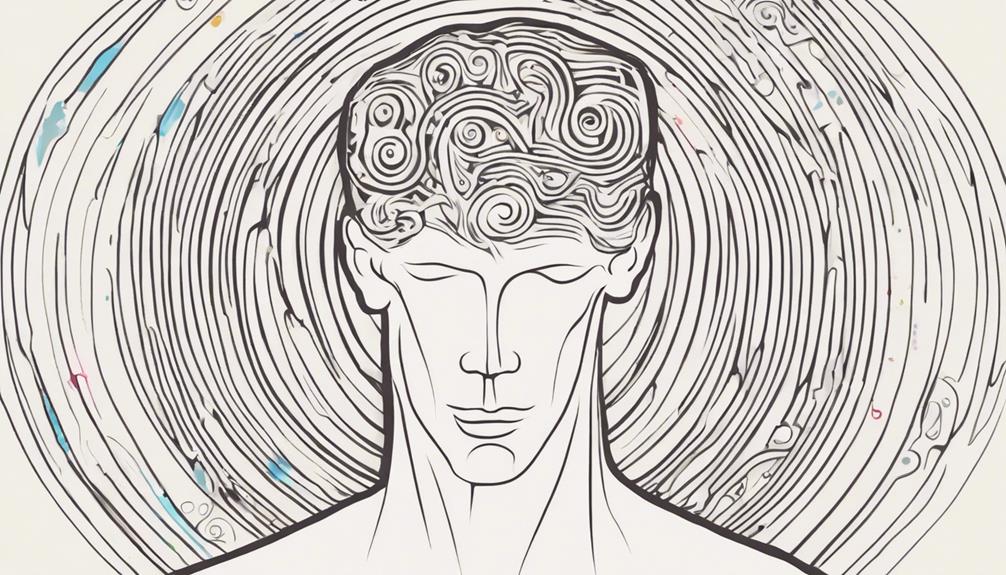
Delving into the intricate relationship between the mind and the soul, philosophers in the realm of the philosophy of mind rigorously analyze the nature of subjective experience and its profound connection to the concept of consciousness. Within this domain, several key aspects come into focus:
- Dualism Theory: Renowned philosophers like Descartes propose the dualism theory, which posits a separation between the mind (soul) and the physical body. This theory underscores the distinct nature of the soul and its relationship to consciousness.
- Personal Identity: Questions about personal identity and self-awareness often take center stage in discussions surrounding the mind-soul connection. Philosophers grapple with the essence of existence tied to the soul and how it shapes an individual's sense of self.
- Eastern Philosophies: Perspectives from Eastern philosophies such as Buddhism and Hinduism provide unique insights into the mind-soul connection and the concept of consciousness. These perspectives offer alternative viewpoints that enrich the discourse on the nature of the soul and its relationship to the mind.
Quantum Physics and Consciousness
Understanding the intricate interplay between quantum physics and consciousness requires a critical examination of experimental evidence challenging conventional perceptions of reality. Quantum physics experiments have provided compelling insights into the interconnectedness of consciousness and the fundamental fabric of existence. Through phenomena like quantum entanglement and teleportation, the non-local nature of consciousness has been suggested, hinting at a universal interconnectedness that transcends traditional notions of space and time. Moreover, the observer-dependent behavior observed in quantum physics extends beyond the realm of the subatomic, implying a deep and mysterious connection between consciousness and the universe at large.
| Quantum Physics and Consciousness | ||
|---|---|---|
| Key Concepts | Implications | Examples |
| Non-locality of consciousness | Universal interconnectedness | Quantum entanglement |
| Observer-dependent behavior | Profound connection to the universe | Quantum teleportation |
| Influence on macroscopic phenomena | Consciousness shaping reality | Biological systems |
In exploring the relationship between quantum physics and consciousness, it becomes increasingly evident that the boundaries between the two are blurred, raising profound questions about the nature of existence and the potential implications for the concept of the soul.
Near-Death Experiences and the Soul
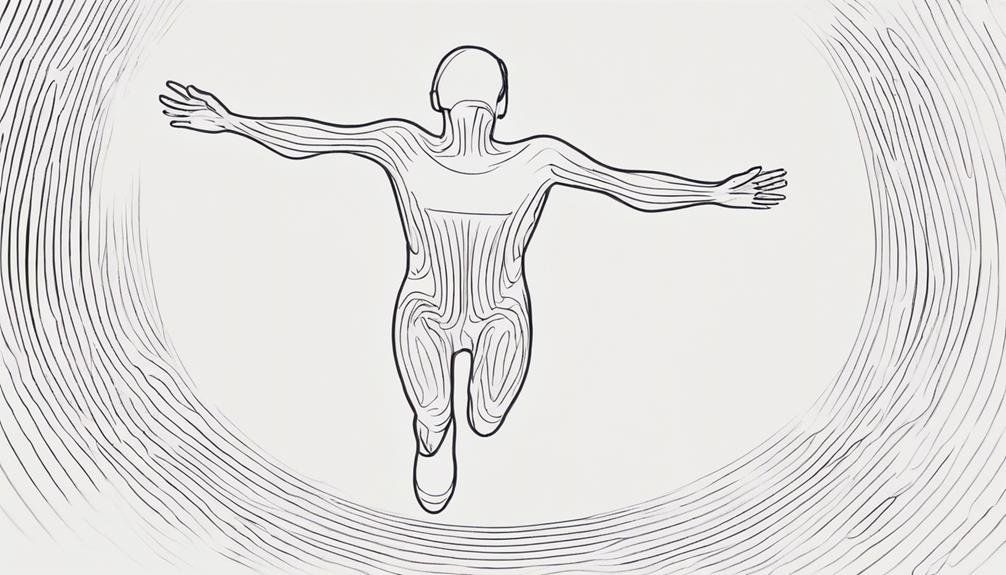
Near-death experiences present a complex and intriguing phenomenon that challenges conventional understandings of consciousness and the existence of a soul. These experiences often involve vivid elements such as encountering deceased loved ones, observing medical procedures from outside the body, and feeling a sense of peace and light. Research indicates that near-death experiences can lead to profound spiritual transformations, reducing the fear of death and strengthening beliefs in an afterlife.
- Near-death experiences often include seeing a bright light, feeling peace, and encountering deceased loved ones.
- Some individuals report out-of-body experiences during near-death episodes, observing events from a vantage point outside their physical body.
- Research suggests that near-death experiences can result in significant spiritual changes, impacting beliefs about death and the afterlife.
These accounts challenge materialistic views by offering subjective insights into consciousness and existence beyond the physical realm, prompting further inquiry into the nature of the soul.
Reincarnation and the Soul
The concept of reincarnation poses a significant challenge to conventional scientific understandings of life and consciousness. Reincarnation suggests that the soul can transmigrate into a new body after death, guided by the principle of karma from past lives. This belief is supported by documented cases where individuals, often children, have memories that correspond to verified events from previous lives. The idea that birthmarks and birth defects can be attributed to past-life traumas further blurs the line between the physical body and the continuity of consciousness. Across various cultures and religions, reincarnation is a fundamental element, underscoring the soul's eternal journey through different incarnations. The implications of reincarnation extend beyond individual experiences, raising profound questions about the nature of consciousness, memory, and the timeless existence of the soul. As science grapples with reconciling these concepts with empirical evidence, the discourse on the soul's immortality and its connection to past lives continues to provoke contemplation and inquiry.
Neuroscience and the Soul
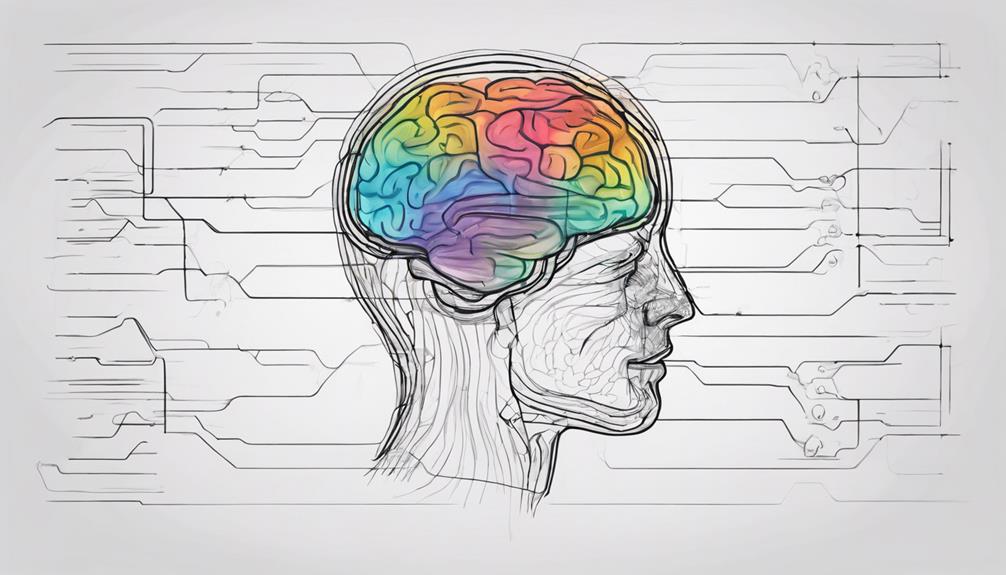
Neuroscience faces the challenge of explaining how brain activity correlates with subjective experiences and consciousness. Despite advancements in understanding brain function, the complexity of human subjective experiences remains elusive to purely neuroscientific explanations. Investigating the relationship between the brain and the concept of the soul adds a layer of complexity to the ongoing quest to comprehend the nature of consciousness.
Brain Vs. Consciousness
While neuroscience grapples with understanding the intricate relationship between brain activity and consciousness, the concept that consciousness may transcend the confines of the physical brain has sparked intriguing debates within the scientific community.
Key Points:
- Neuroscience struggles to fully explain the relationship between brain activity and the nature of consciousness.
- Some scientists propose that consciousness may transcend the physical brain, suggesting the existence of a soul.
- Studies on near-death experiences indicate that consciousness can exist independently of the body, challenging materialistic views.
The ongoing debate between brain function and subjective experience highlights the complexities surrounding the understanding of consciousness and the potential existence of a soul. Research in neuroscience continues to delve into the connection between brain processes and the enigmatic nature of human consciousness.
Mind-Body Connection
Investigating the intricate correlation between brain functions and subjective experiences sheds light on the elusive connection between neuroscience and the concept of the soul. Neuroscience grapples with understanding the mind-body connection, where studies indicate that brain activity alone cannot wholly explain consciousness or personal identity. Research suggests that despite changes in brain functions, personal identity remains intact, hinting at a deeper complexity beyond mere brain activity. These findings challenge conventional notions of consciousness solely rooted in physical processes. The quest to unravel the relationship between the brain and consciousness remains pivotal in exploring the existence of the soul.
| Mind-Body Connection | |
|---|---|
| Subjective Experiences | Personal Identity |
| Consciousness | Brain Activity |
Spiritual Experiences Impact
Exploring the impact of spiritual experiences on brain function and neural pathways presents intriguing insights into the potential intersection of neuroscience and the concept of the soul. When delving into this topic, several key points emerge:
- Brain Activity: Neuroscience studies indicate changes in brain activity during spiritual practices like meditation or prayer, particularly in regions linked to emotions and self-awareness.
- Connectedness: Spiritual experiences have been associated with increased feelings of connectedness, suggesting a potential link between spirituality and social well-being.
- Mental Health: Research shows that incorporating spiritual practices, such as mindfulness meditation, can positively impact mental health by reducing stress and improving emotional regulation. These findings hint at the profound effects spiritual experiences may have on the brain and overall well-being.
Consciousness as Evidence of the Soul
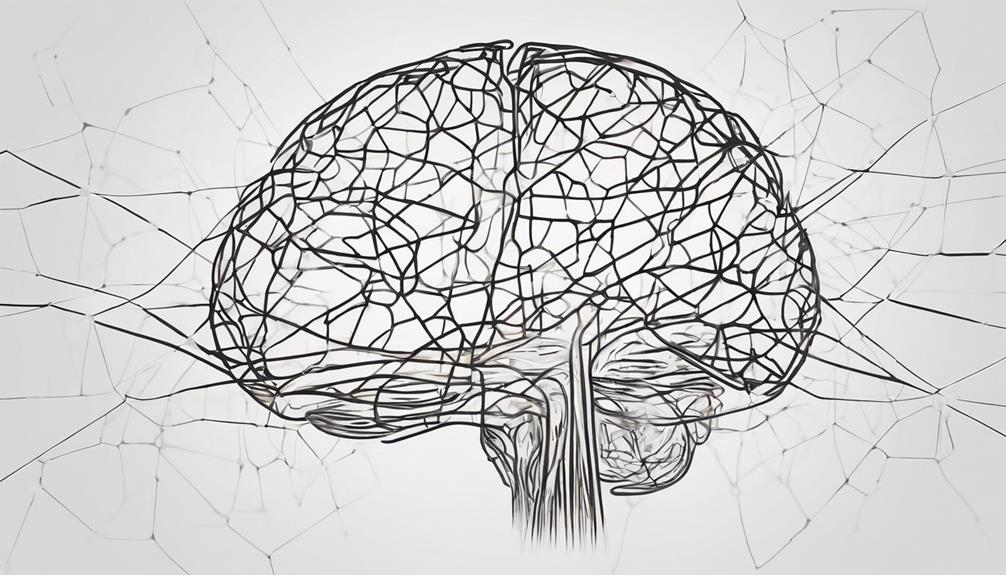
Examining the intricate relationship between consciousness and the physical brain provides compelling insights into the potential existence of a soul. While neuroscience has made significant advances in understanding how the brain functions, the nature of consciousness remains elusive. Studies indicating that brain activity alone cannot completely account for consciousness suggest the involvement of something beyond the physical realm. Near-death experiences, where consciousness appears to exist outside the body, offer tantalizing hints at the separate existence of a soul.
Moreover, the display of emotions and consciousness in animals further supports the idea of a non-physical aspect influencing behavior. The persistence of personal identity despite physical changes implies a core consciousness that transcends the physical body. Additionally, phenomena like dreams and thoughts occurring independently of external stimuli point towards a source of consciousness that extends beyond the confines of the brain. These observations collectively provide intriguing evidence that consciousness may indeed be linked to the existence of a soul.
The Role of Emotions in Soul Existence
Are emotions a reliable indicator of the existence of the soul, or are they purely biological responses to external stimuli? Emotions, being intangible and deeply personal experiences, have long been associated with the spiritual and conscious aspects of human existence. Here are three points to consider in this debate:
- Complexity of Human Emotions: The intricate range and depth of human emotions go beyond simple biological explanations, hinting at a more profound, immaterial aspect of consciousness that aligns with the concept of a soul.
- Transcendence of Emotions: Emotions such as love, compassion, and empathy often defy straightforward physical interpretations, pointing towards a spiritual or soulful essence within individuals that shapes their experiences and connections.
- Subjective Nature of Emotions: The individualized and subjective nature of emotional experiences across people suggests a personalized, non-physical dimension of existence that could be linked to the presence of a soul.
These aspects of emotions invite contemplation on the deeper, spiritual dimensions of human existence beyond the confines of physicality.
Ethics and the Existence of the Soul

Ethical frameworks rooted in the concept of the soul often serve as foundational pillars for guiding moral principles and decision-making processes. The belief in the soul can significantly influence ethical considerations, emphasizing values that go beyond mere material concerns. This belief can have a profound impact on how individuals view accountability, extending responsibility beyond the confines of physical life. Furthermore, the idea of the soul is intricately linked to concepts of empathy and compassion, fostering ethical behavior by encouraging individuals to consider the well-being of others.
To delve deeper into the connection between ethics and the existence of the soul, consider the following table:
| Ethical Considerations | Impact on Moral Principles |
|---|---|
| Belief in the soul | Emphasizes values beyond material considerations |
| Immortal soul | Extends accountability beyond physical life |
| Empathy and compassion | Encourages ethical interactions and consideration for others |
| Transcendence of moral values | Influences ethical frameworks beyond physical existence |
Artificial Intelligence and the Soul
The absence of a soul in artificial intelligence is starkly evident in its operational framework devoid of consciousness, emotions, and spiritual capacities.
Reasons Why AI Lacks a Soul:
- Absence of Consciousness: AI lacks subjective awareness and self-reflection, key components of human consciousness.
- Emotional Void: Emotions like empathy and love, integral to human interactions and spiritual experiences, are absent in AI's algorithmic nature.
- Spiritual Limitations: AI operates within a materialistic model, focusing on practical outcomes rather than exploring existential questions or metaphysical realms.
In the realm of AI, the concept of a soul is irrelevant as its functions are primarily utilitarian and lack the depth associated with spiritual and metaphysical aspects. The scientific paradigm on which AI is based does not accommodate the existence of a soul, as it emphasizes observable and measurable phenomena. Therefore, the exploration of the soul's existence without scientific analysis renders AI an inadequate subject for studying the profound aspects of consciousness that are central to human existence.
Evolutionary Biology and the Soul

In the realm of evolutionary biology, the exploration of the soul's existence delves into the origins of human behavior and consciousness. Evolutionary perspectives suggest that beliefs in the soul may have evolved due to their potential adaptive value in human cognitive development and social interactions. Some evolutionary psychologists debate whether these beliefs provided an evolutionary advantage or were byproducts of other cognitive mechanisms. While evolutionary biology does not directly address the existence of the soul, it offers insights into how such beliefs could have influenced human evolution. Through studying the origins of human behavior, researchers can trace how concepts like the soul may have emerged as mechanisms for enhancing cooperation, morality, or understanding the self and others. The table below presents a simplified view of how evolutionary biology intersects with beliefs in the soul:
| Evolutionary Biology | Beliefs in the Soul | Human Cognitive Development |
|---|---|---|
| Origins of Human Behavior | Adaptive Value | Social Interactions |
Quantum Entanglement and the Soul
The potential correlation between quantum entanglement and the existence of a soul raises intriguing questions about the interconnected nature of reality. Exploring the connection between quantum states and consciousness may offer insights into the fundamental aspects of existence. The concept of non-locality in spirituality challenges conventional boundaries and prompts a reevaluation of the relationship between the physical and the metaphysical.
Soul and Entanglement Connection
Demonstrating a potential correlation between quantum entanglement and the concept of the soul requires an exploration of the interconnectedness suggested by this phenomenon.
Key Points:
- Interconnectedness: Quantum entanglement implies a deep connection that transcends physical boundaries, hinting at a possible link to the soul's existence.
- Non-local Communication: The instantaneous communication between entangled particles challenges traditional views of consciousness and raises intriguing questions about the nature of the soul beyond physical confines.
- Challenging Realities: Experiments showcasing quantum entanglement push the boundaries of our understanding of reality, offering a new perspective on the essence of life and potentially shedding light on the enigmatic nature of the soul.
Quantum States and Consciousness
Exploring the potential correlation between quantum entanglement and the concept of the soul necessitates a rigorous examination of the intricate interplay between quantum states and consciousness. Quantum states exhibit interconnectedness that challenges classical views of reality, suggesting a possible link to the existence of the soul. Quantum physics experiments showcasing non-local communication and teleportation hint at a reality where consciousness transcends physical boundaries, aligning with the notion of a soul. The table below summarizes key points regarding the relationship between quantum states, consciousness, and the potential existence of the soul.
| Quantum States and Consciousness | |
|---|---|
| Quantum Entanglement | Interconnectedness |
| Non-local Communication | Existence of the Soul |
| Quantum Teleportation | Consciousness |
| Biological Systems | Quantum Physics Experiments |
| Macroscopic Phenomena | Fundamental Connection |
Non-Locality in Spirituality
Interwoven within the fabric of quantum entanglement lies a compelling intersection with spiritual philosophies, particularly in the realm of non-locality and the concept of the soul.
Key Points:
- Quantum entanglement challenges conventional ideas of space and distance, resonating with spiritual teachings on interconnectedness.
- The instantaneous effect of entangled particles suggests a form of information transfer that transcends physical limitations, akin to spiritual beliefs in non-local communication.
- Quantum entanglement's implications for interconnectedness and non-locality hint at a reality where the soul's transcendence beyond physical boundaries aligns with spiritual doctrines.
This alignment between quantum phenomena and spiritual concepts raises intriguing questions about the nature of reality and the interconnectedness of all things.
The Future of Soul Research
The evolution of soul research entails a rigorous examination of the interconnectedness between consciousness and the brain to unravel the enigma surrounding the existence of the soul. Future investigations aim to address fundamental questions about the nature of consciousness and its relationship to the soul's existence. Studies on near-death experiences offer a unique perspective, probing consciousness beyond the physical realm and its potential implications for the soul's existence and immortality.
Researchers are also delving into the scientific evidence supporting the existence of the soul, challenging traditional beliefs and expanding the boundaries of our understanding. Moreover, exploring the impact of soul beliefs on mental health provides valuable insights into the psychological facets of soul concepts. By examining consciousness in the broader context of the universe, researchers strive to shed light on the enduring questions surrounding the soul's immortality and existence. The future of soul research holds promise in unraveling the mysteries that have long fascinated humanity, offering a scientific lens through which to explore age-old philosophical inquiries.
Frequently Asked Questions
Is There Any Evidence of the Existence of the Soul?
While the philosophical debate over the existence of the soul continues, scientific studies have explored various aspects such as near-death experiences, empirical evidence, spiritual traditions, and personal anecdotes. Quantum mechanics and consciousness studies have also delved into metaphysical concepts. Reincarnation stories challenge materialistic views, emphasizing the mind-body connection and raising existential questions. The search for concrete evidence of the soul remains a complex and ongoing endeavor.
Do Scientists Believe in the Soul?
In the scientific debate surrounding the existence of the soul, perspectives vary. While some scientists hold a materialist view, attributing consciousness solely to brain activity, others entertain the idea of a soul from a philosophical standpoint. The concept of the soul intersects with discussions on conscious experience, emotional intelligence, and spiritual beliefs, prompting diverse opinions within the scientific community. The exploration of these complex topics requires a nuanced and critical approach to understanding the nature of existence.
Where Is the Soul Located in the Human Body?
In the realm of philosophical and scientific inquiry, the ongoing discourse surrounding the location of the soul within the human body remains complex and multifaceted. Traditional perspectives have posited various sites such as the brain or heart, while Eastern philosophies have emphasized a more dispersed notion of spiritual energy. Modern investigations, including those rooted in consciousness studies, quantum physics, and near-death experiences, challenge the concept of a localized soul and invite a deeper exploration of the nature of human consciousness.
What Is a Belief in the Existence of a Soul?
A belief in the existence of a soul revolves around the notion of a spiritual essence within individuals, often associated with afterlife beliefs and the concept of an immortal spirit. This metaphysical idea engages in philosophical debates about inner consciousness and the nature of human existence beyond the physical realm. While the soul's existence cannot be empirically proven, its significance lies in its role as a guiding force in shaping human spirituality and understanding of life's deeper meanings.
Conclusion
In the vast universe of knowledge, the existence of the soul remains a tantalizing enigma, shrouded in layers of complexity and debate. Like a delicate web woven between dimensions, the concept of the soul beckons us to delve deeper into the mysteries of consciousness and existence. Through the lens of science, philosophy, and spirituality, we continue to unravel the threads of this timeless puzzle, seeking to unlock the secrets that lie at the core of our being.
